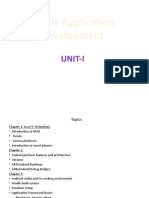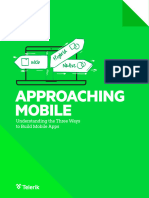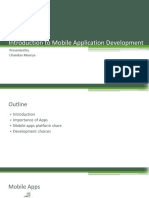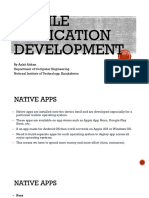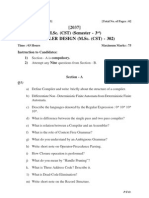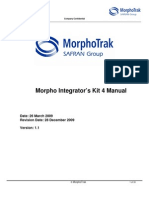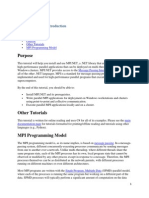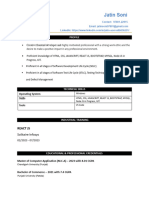0% found this document useful (0 votes)
88 views16 pagesIntroduction To Mobile Applications
This document provides an overview of mobile application development from several perspectives. It discusses that mobile apps are now trending as people are increasingly using their mobile devices for various tasks. It describes different types of mobile apps, including native apps programmed for specific platforms, hybrid apps, and web apps. The document also discusses perspectives from businesses, users, and developers in regards to opportunities and challenges with mobile apps. Finally, it provides a brief history of mobile platforms and compares advantages of native apps versus other approaches.
Uploaded by
Md. Jubair Hossain 201-15-13590Copyright
© © All Rights Reserved
We take content rights seriously. If you suspect this is your content, claim it here.
Available Formats
Download as PPTX, PDF, TXT or read online on Scribd
0% found this document useful (0 votes)
88 views16 pagesIntroduction To Mobile Applications
This document provides an overview of mobile application development from several perspectives. It discusses that mobile apps are now trending as people are increasingly using their mobile devices for various tasks. It describes different types of mobile apps, including native apps programmed for specific platforms, hybrid apps, and web apps. The document also discusses perspectives from businesses, users, and developers in regards to opportunities and challenges with mobile apps. Finally, it provides a brief history of mobile platforms and compares advantages of native apps versus other approaches.
Uploaded by
Md. Jubair Hossain 201-15-13590Copyright
© © All Rights Reserved
We take content rights seriously. If you suspect this is your content, claim it here.
Available Formats
Download as PPTX, PDF, TXT or read online on Scribd
/ 16






